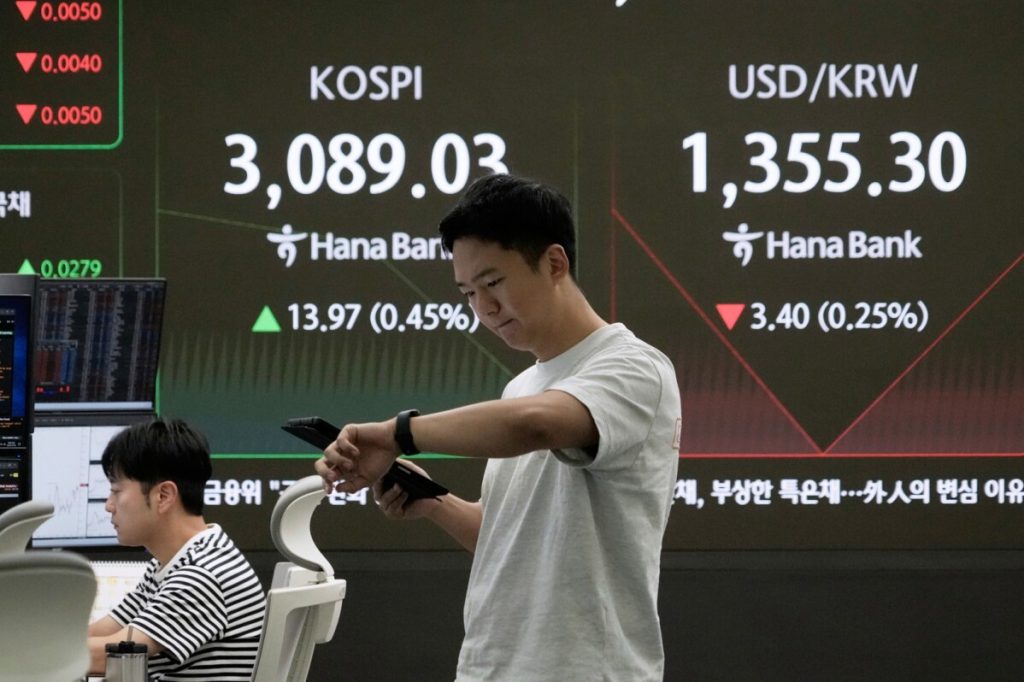South Korea’s Tariff Talks With U.S. Stall as Trump’s Deadline Looms: Where’s the Win for America?
As President Trump sets a firm July 9 deadline on tariffs, South Korean leadership wavers on trade commitments, risking American economic leverage and national security interests.

South Korean President Lee Jae Myung’s recent comments cast serious doubt on the prospects of finalizing a trade deal with the United States before President Trump’s hard deadline of July 9. While both nations continue negotiations, it is clear that Seoul remains hesitant to commit fully to reciprocal terms that would fairly benefit American workers and manufacturers.
Since taking office just last month, Lee Jae Myung has indicated that reaching a mutually beneficial outcome “is difficult to say with certainty,” highlighting challenges in aligning South Korea’s interests with America First policies championed by the Trump administration. This indecision comes despite looming threats of imposing steep 25% tariffs on key South Korean exports like automobiles and semiconductors—industries critical not only to Seoul but also to America’s strategic supply chains.
America First Means Firm Negotiations — Not Hesitation
President Trump’s approach is straightforward: protect American jobs and industry by insisting on fair trade agreements that require allies to pay their share. It is an uncomfortable truth for countries like South Korea, which have enjoyed decades of favorable trade terms while relying heavily on U.S. military protection.
Washington’s potential demand for South Korea to increase contributions toward maintaining over 28,000 U.S. troops stationed there underscores the necessity of rebalancing this alliance based on national sovereignty and fairness. Yet instead of embracing this pragmatic stance, Seoul appears mired in prolonged negotiations without clarity or urgency.
Strategic Security Concerns Demand Strong U.S.-South Korea Alliance
While President Lee talks about improving relations with North Korea through dialogue—and rightly acknowledges deep mistrust between the Koreas—the reality is far more complicated. Pyongyang’s growing military ties with Russia pose a direct threat not only to regional stability but also to American security interests in East Asia.
The softening gestures from Seoul, including halting anti-Pyongyang propaganda broadcasts and restricting civil activism across borders, raise questions about whether South Korea is prioritizing alliance solidarity or drifting toward appeasing adversaries like North Korea, China, and even Russia.
The Trump administration has been consistent in its commitment to robust diplomacy backed by strength—a strategy that demands unwavering support from allies who share America’s determination to counter expanding threats posed by hostile regimes.
The Stakes Are Clear — Will Seoul Step Up or Stall?
The delays in concluding tariff negotiations ahead of this week’s deadline signal stubborn resistance from South Korea’s new leadership unwilling to match America’s resolve for fair trade and stronger defense partnerships. While patience is a virtue in diplomacy, continued hesitation risks undermining U.S. leverage at a critical moment when global security dynamics are shifting rapidly against our interests.
President Trump has shown he will not shy away from imposing tariffs or demanding higher burden-sharing if necessary – these are decisive moves framed by the principle that freedom and sovereignty come first.
If we want our nation secure and our industries thriving, it is imperative that allies like South Korea respect America First policies without delay or equivocation.
Are you ready to hold our leaders accountable? Share this article widely and demand transparent updates on how these crucial negotiations impact your family’s jobs and national security!
